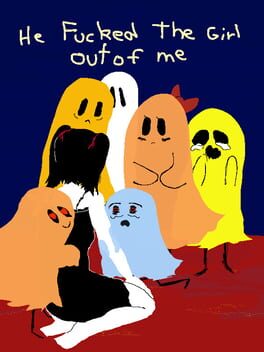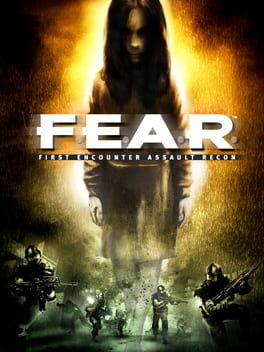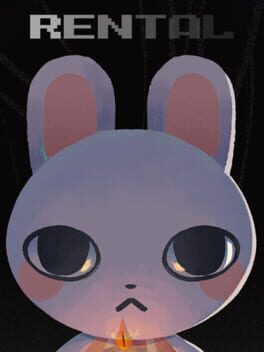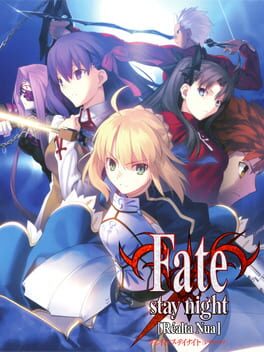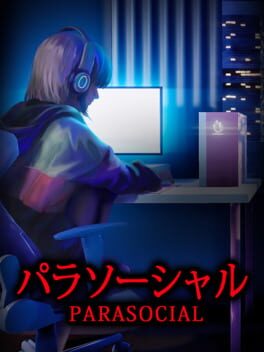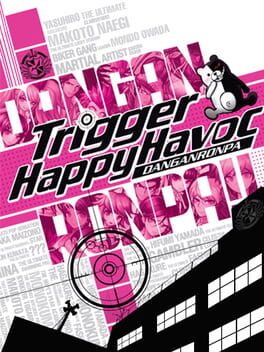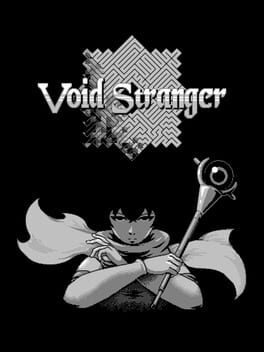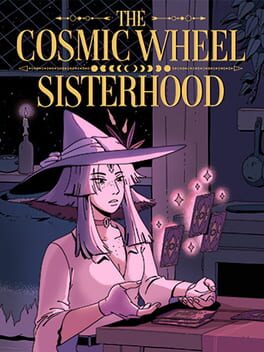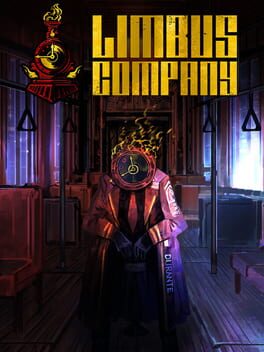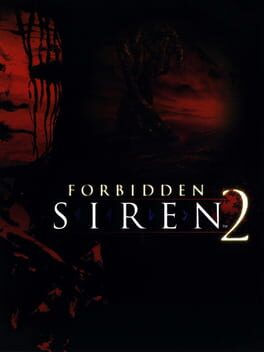Kurizted
27 reviews liked by Kurizted
F.E.A.R.
2005
Rental
2022
Parasocial
2023
Most Danganronpa reviews on here are memey so I thought I’d jot down some legit thoughts I have on the game here. I haven’t been so hooked on a game to this degree in forever. Within the span of 4 days, I had completed the whole storyline, I just could not put it down, I was so engaged as to what would happen in the story next. This’ll overall be a spoiler free review except the excerpt I will mark as such so watch out for that.
Presentation
This game visually slaps. The almost eerie visual style of 2D characters combined with 3D environments contributes to the heavy atmosphere. Sprite quality is overall great as well, and although they aren’t animated, each character can be seen with a distinct personality and look from how their sprites are drawn. The almost Tim Burton-esque look to the Execution FMVs look amazing as well, I love how uncannily they are animated. Other elements, such as the UI, are flashy and unique, and you can’t forget the ever famous “NO, THAT’S WRONG” cut-in animation (well I guess “Sore Wa Chigau Yo” since I was playing the PSP translation). Also, the music is banging. Love the techno sound to it, and the variety of tracks on display. "Beautiful Death" is one of the most boppin' and atmospheric tracks I've heard in a video game in recent memory.
Characters
Overall solid cast here. Some characters such as Fuwaka I absolutely could not stand (I’m assuming intentionally so??), but I ended up enjoying most of the characters. Makoto is a very vanilla protagonist but seeing him grow throughout the journey was satisfying for me. I also liked the mysterious Kirigiri, the swimmer donut girl Asahina, the strong and honorable Sakura, and my bro (but also borderline con artist) Hagakure. Byakuya is also a pretty decent rival character throughout. Seeing the number of the 15 characters slowly dwindle, along with the fact you can potentially make strong bonds with these folks makes their losses go harder if that ever happens. My friend TonySADX mentioned that the more of the school you unlock, the more desolate the population becomes, and I can't stress enough how smart that subtle dynamic goes the further you dive into this large mystery.
Gameplay
Danganronpa is compared to Ace Attorney alot, and structurally they are very similar. But I’ll be damned if the trials in these games are WAY more stressful then any of the Ace Attorney ones. Time limits, complex mechanics, a ranking system, it makes these trials quite a havoc (NOW LAUGH). I played on the easiest difficulty because I’m a slow thinker, but I’d imagine that they are more rewarding on normal and above. I liked most of the minigames, but SCREW the comic books, I hate doing those so much.
CHAPTER 6 SPOILERS BELOW
Sorta mixed on the final villain. I’m not the biggest fan of bonkers antagonists, but this one has such a great sprite set showing their insanity and I love that. A bit anticlimactic that we only get to see them face to face at the latter half of the final trial, but they were a joy to see and eventually take down. One of the most satisfying final villain takedowns I’ve seen in these detective style visual novels. Also I think they have a really solid character design so that’s a plus.
SPOILERS END HERE
Final Thoughts
In summary, I really enjoyed this game. Kept me engaged the entire way throughout, and I’ve been informed that it only gets better from here. However, it’s definitely a very flawed game in some aspects, and I can COMPLETELY understand both the fan and hater sides of the spectrum, both are justified in my opinion. I’m already thoroughly impressed by this first attempt in the series, and I hope that I enjoy 2 and V3 just as much.
Presentation
This game visually slaps. The almost eerie visual style of 2D characters combined with 3D environments contributes to the heavy atmosphere. Sprite quality is overall great as well, and although they aren’t animated, each character can be seen with a distinct personality and look from how their sprites are drawn. The almost Tim Burton-esque look to the Execution FMVs look amazing as well, I love how uncannily they are animated. Other elements, such as the UI, are flashy and unique, and you can’t forget the ever famous “NO, THAT’S WRONG” cut-in animation (well I guess “Sore Wa Chigau Yo” since I was playing the PSP translation). Also, the music is banging. Love the techno sound to it, and the variety of tracks on display. "Beautiful Death" is one of the most boppin' and atmospheric tracks I've heard in a video game in recent memory.
Characters
Overall solid cast here. Some characters such as Fuwaka I absolutely could not stand (I’m assuming intentionally so??), but I ended up enjoying most of the characters. Makoto is a very vanilla protagonist but seeing him grow throughout the journey was satisfying for me. I also liked the mysterious Kirigiri, the swimmer donut girl Asahina, the strong and honorable Sakura, and my bro (but also borderline con artist) Hagakure. Byakuya is also a pretty decent rival character throughout. Seeing the number of the 15 characters slowly dwindle, along with the fact you can potentially make strong bonds with these folks makes their losses go harder if that ever happens. My friend TonySADX mentioned that the more of the school you unlock, the more desolate the population becomes, and I can't stress enough how smart that subtle dynamic goes the further you dive into this large mystery.
Gameplay
Danganronpa is compared to Ace Attorney alot, and structurally they are very similar. But I’ll be damned if the trials in these games are WAY more stressful then any of the Ace Attorney ones. Time limits, complex mechanics, a ranking system, it makes these trials quite a havoc (NOW LAUGH). I played on the easiest difficulty because I’m a slow thinker, but I’d imagine that they are more rewarding on normal and above. I liked most of the minigames, but SCREW the comic books, I hate doing those so much.
CHAPTER 6 SPOILERS BELOW
Sorta mixed on the final villain. I’m not the biggest fan of bonkers antagonists, but this one has such a great sprite set showing their insanity and I love that. A bit anticlimactic that we only get to see them face to face at the latter half of the final trial, but they were a joy to see and eventually take down. One of the most satisfying final villain takedowns I’ve seen in these detective style visual novels. Also I think they have a really solid character design so that’s a plus.
SPOILERS END HERE
Final Thoughts
In summary, I really enjoyed this game. Kept me engaged the entire way throughout, and I’ve been informed that it only gets better from here. However, it’s definitely a very flawed game in some aspects, and I can COMPLETELY understand both the fan and hater sides of the spectrum, both are justified in my opinion. I’m already thoroughly impressed by this first attempt in the series, and I hope that I enjoy 2 and V3 just as much.
Void Stranger
2023
It is very difficult to say anything meaningful about Void Stranger without completely spoiling the experience.
I can at least give you this: Void Stranger does many incredible things that only video games can, and it does them more adeptly than anything else I have ever played.
It is among the very best of its medium.
I can at least give you this: Void Stranger does many incredible things that only video games can, and it does them more adeptly than anything else I have ever played.
It is among the very best of its medium.
Cosmic Wheel Sisterhood is made of incredibly interesting game design ideas, but is occasionally let down by inconsistent writing quality.
That's not to say the writing is bad -- some of it is very good! -- but there are passages that felt like mid-2010s AO3 prose instead of Professional Videogame Writing, if that makes sense.
There's also some occasional tension between your own role-play and the game's text. Certain dialogue choices ask you to express explicit character traits (e.g. do you value Romance, Knowledge, or Power), but the player-character will often say things that directly contradict the character-writing you've done on your own.
With that said: if you think a cute wiccan lesbian visual novel deckbuilder is your sort of game, you should absolutely play this.
That's not to say the writing is bad -- some of it is very good! -- but there are passages that felt like mid-2010s AO3 prose instead of Professional Videogame Writing, if that makes sense.
There's also some occasional tension between your own role-play and the game's text. Certain dialogue choices ask you to express explicit character traits (e.g. do you value Romance, Knowledge, or Power), but the player-character will often say things that directly contradict the character-writing you've done on your own.
With that said: if you think a cute wiccan lesbian visual novel deckbuilder is your sort of game, you should absolutely play this.
Limbus Company
2023
Forbidden Siren 2
2006
I love Siren, but I think anyone who shares that love and reveres it as a cult classic will admit that part of why it's so terrifying is often because of its clunkiness and cryptic mission requirements-- it's a game in which one wrong step WILL get your ass beat, and this can genuinely lead to you being paralyzed with fear. This is such a fascinating sequel to me, then, because it's so polished compared to the original Siren, to an extent where I earnestly feel as if it's one of the most well-made PS2-era survival horror games I've played. This does make it a bit less terrifying. First of all, playable characters in Siren 2 seem to have useful weapons more readily available, and from what I noticed, there's less shibitos where running into them is a death sentence (ie. pistol wielding ones), and therefore you can sightjack and stealth a bit less. On top of this, I do think that the Yamibito and Yamirei are less scary than the actual shibito, and they replace them entirely halfway through the game. Maybe this is unpopular, but the Yamibito especially lose their edge once you realize you can just run towards them with your flashlight on and lay into them. Compare this to late-stage shibitos from the first game, which are horrifying and disgusting... not quite the same. Though I do think the designs for the evolved Yamibito are incredibly uncanny. Having said all this... Siren 2 is still scary as shit, lol. These games are so good at just feeling evil, like something you shouldn't be witnessing.
Besides those minor complaints, though, I think this game is fantastic. It has an incredibly eerie and melancholic atmosphere (as to be expected of a Toyama game), and, similar to its predecessor, really neat folklore. Its plot is far more decipherable on a moment-to-moment basis than Siren, while still maintaining that mysterious Siren fever dream storytelling. The settings in the game are memorable as well, with the Bright Win ship, the apartment complex, and the amusement park sticking out as some pretty scary and unique areas. I don't know if it will haunt me as much as the first game (Tomoko Maeda and Miyako's respective fates and, what I consider to be the scariest survival horror moment for me, Harumi Yomoda's Day 2 missions, come to mind), though it DEFINITELY has its moments, but I enjoyed actually playing it more, fwiw. And you can tell they had so much fun making this! All in all, it's another incredible showing from the Siren team-- it's a shame they don't make these anymore!!
My favorites were Ichiko, Akiko, Ikuko, and Soji. I love Soji! I think I would behave the same way if I washed up on Yamijima (bumbling around and whining, confused).
Besides those minor complaints, though, I think this game is fantastic. It has an incredibly eerie and melancholic atmosphere (as to be expected of a Toyama game), and, similar to its predecessor, really neat folklore. Its plot is far more decipherable on a moment-to-moment basis than Siren, while still maintaining that mysterious Siren fever dream storytelling. The settings in the game are memorable as well, with the Bright Win ship, the apartment complex, and the amusement park sticking out as some pretty scary and unique areas. I don't know if it will haunt me as much as the first game (Tomoko Maeda and Miyako's respective fates and, what I consider to be the scariest survival horror moment for me, Harumi Yomoda's Day 2 missions, come to mind), though it DEFINITELY has its moments, but I enjoyed actually playing it more, fwiw. And you can tell they had so much fun making this! All in all, it's another incredible showing from the Siren team-- it's a shame they don't make these anymore!!
My favorites were Ichiko, Akiko, Ikuko, and Soji. I love Soji! I think I would behave the same way if I washed up on Yamijima (bumbling around and whining, confused).
